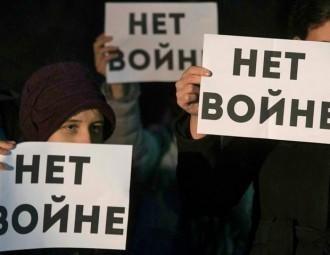Belarusans reveal strengthening of pro-Russian sentiments, latest polls show

At the same time the attitude to Europe demonstrates the opposite tendency. The chief reason for the change in Belarusians’ opinion is the events in Ukraine, the researchers say.
The Independent Institute of Socio-Economic and Political Studies (IISEPS) has published the latest survey results. There was a tendency to strengthening pro-European attitudes in Belarus in the past few years and the attitude to Russia was becoming ‘colder’, sociologists noted. However, the tendency has changed to the opposite now, Belsat cites the results of the survey.
According to the IISEPS, if a referendum on uniting Belarus and Russia was held now, 29.3% of the pollees would vote pro and 47.7% – contra (the corresponding numbers were 23.9% and 51.4% in December 2013).
Referring to the findings of its quarterly survey of 1,502 people in March, the IISEPS said that the percentage of people who would vote in a plebiscite for Belarus joining the European Union went down from 35.9 to 30.2 percent, and the share of those saying that they would vote “No” soared from 34.6 to 44.3 percent, Euroradio says referring to the IISEPS.
When facing a choice between membership in the EU and unification with Russia, 32.9 percent chose the former option, down from 44.6 percent in December. The proportion of those choosing unification with Russia jumped from 36.6 percent in December to 51.5 percent in March.
Only 8.6% of the pollees approve of “some politicians’ appeals to cancel the World Ice Hockey Championship in Minsk if the country does not stop violating human rights”. 47.9% do not like the appeals and 39.2% do not care.
As many as 63.8 percent predicted that in 10 years Belarus would have closer ties with Russia than with the EU, while 19.2 percent expressed the opposite opinion.
The IISEPS remarks that the sharp rise in pro-Russian sentiments in Belarus is caused due to Ukraine's popular uprising that swept President Viktor Yanukovich from power and has been portrayed by the Russian media as a Western-orchestrated coup led by neo-Nazi forces.
-
03.01
-
07.10
-
22.09
-
17.08
-
12.08
-
30.09








































